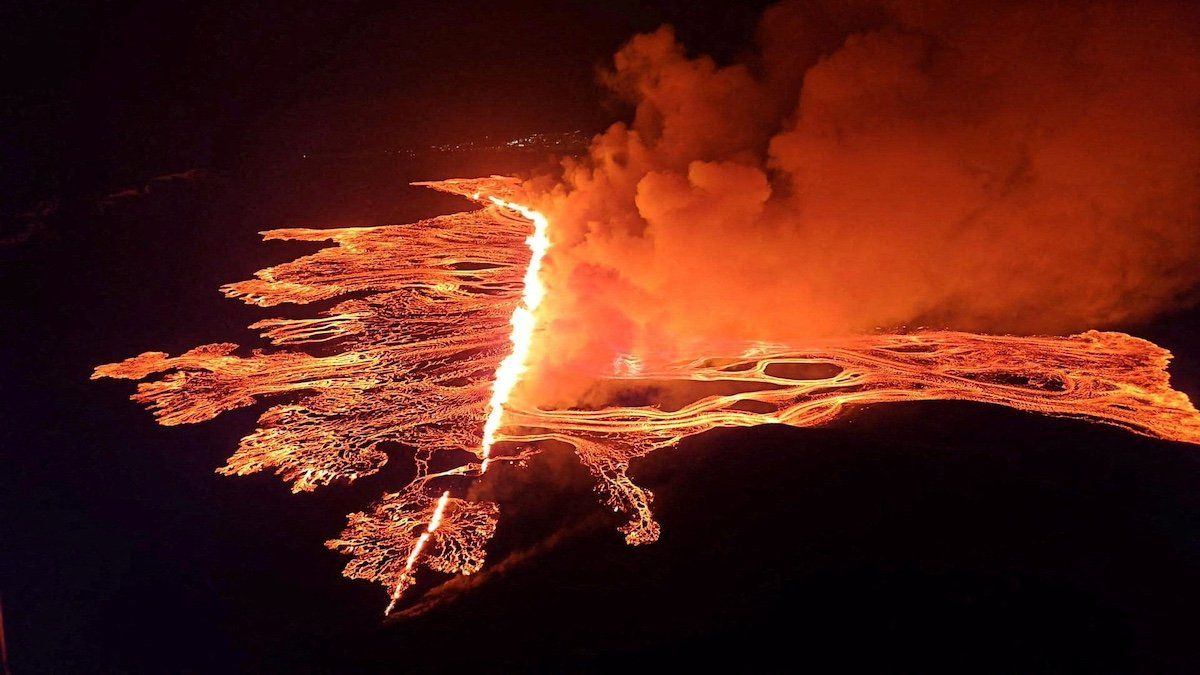Hard Numbers: Icelandic volcano erupts, India sets election date, EU aids Egyptian economy, South Sudan schools close amid extreme heat
40: Just 40 minutes after authorities received indications of an eruption late Saturday, lava shot from a huge fissure on the Reykjanes Peninsula near Grindavik and the famed Blue Lagoon. The fourth — and probably biggest — eruption to have hit here since December nearly took services by surprise. The town and resort were both evacuated shortly after the eruption.
960 million: The largest-ever democratic exercise is set to begin on April 19 with a whopping 960 million voters participating in India’s parliamentary elections. Indians will head to the polls for seven electoral phases through June 1, with the count set to take place on June 4. Populist Prime Minister Narendra Modi’s Bharatiya Janata Party is expected to secure another five years at the helm of an increasingly religiously divided India — but one that is also tipped to become the third-largest world economy by 2027. For GZERO’s guide to world elections in 2024, click here.
7.4 billion: The EU has agreed to send Cairo a funding package of €7.4 billion ($8.06 billion) between now and 2027 to help stabilize Egypt’s economy and wean it off Russian gas. The Egyptian economy has been hard hit by recent economic crises – most notably, the Israel-Hamas conflict in Gaza, which is impacting tourism and shipping in the Suez Canal.
113: Children in South Sudan are unable to attend school starting today, owing to an extreme heat wave that could raise the mercury as high as 113 degrees Fahrenheit. All schools have been ordered to shut down, and parents are being advised to keep kids indoors with the scorching temps set to last for up to two weeks.